- Home
- Amanda Hocking
The Lost City Page 3
The Lost City Read online
Page 3
“Sorry, I didn’t mean to hold you up,” Bryn said.
“No, don’t be silly. We really do need to catch up soon.”
“You have my number, and you can call me when you’re not swamped with all your work at the Mimirin.” Then she hugged me, holding me close for a second. “Tavvaujutit,” she whispered, saying goodbye in Inuktitut—tah-vow-voo-teet.
“Tavvaujutit,” I replied quietly, letting go of my oldest friend. I walked to the Jeep, looking back once to wave at everyone who was still around, and when I got in, I sat for a second and took a deep breath. It was time to leave behind everything I knew to start on my next adventure.
4
Fathers
The citadel of Merellä sat right on the ocean in southern Oregon, some two thousand miles away from Förening. Almost right in the middle between the two cities was Eftershom—a tiny Trylle village nestled in the mountains of western Montana. That’s where Hanna’s grandparents lived, a mere thirteen hours away.
My goal from the start had been to make the trip to Eftershom in one day, and we’d gotten off to a late start, but I still thought it was doable assuming Hanna’s pit stops didn’t get in the way.
The stop to get fast food had been wonderfully quick, which left me optimistic. Then the three bathroom breaks came after, and that’s not counting the time I had to pull over on the side of the road so she could throw up.
“Ugh.” Hanna groaned and rested her head against the window.
“I told you that the shake and fries were a bad idea.”
I really had tried to talk her out of it, suggesting that she ease herself into new foods with smaller sizes or maybe a salad or fruit. But Hanna insisted that I promised she could eat what she wanted from wherever she wanted, and now she was paying the price.
“Maybe I have the flu.” She peered over at me with an eagerness that belied her intentions. “Maybe we should go back so I can rest up, and we can leave tomorrow.”
“Nope. We’re three hours away. Besides, you wanted to see the outside and the human world.” I gestured to the acres of farmland that surrounded us as we traveled down a mostly empty highway. “Distract yourself from your upset stomach by taking in the scenery.”
“This is not what I had in mind,” Hanna muttered. “The gas stations haven’t exactly been thrilling either.”
“I’m sorry to tell you that humans aren’t any more exciting than trolls,” I said, and she snorted.
I had never spent much time outside of the troll kingdoms, but Finn’s job had once been to go out and collect changelings from the human world, so he’d had to be an expert on their culture and way of life, and he thought it was important that we understood how the other half lived. But no matter how often he tried to teach Hanna that humans were usually just as boring as we were, she remained convinced that they were all jet-setting debutantes.
For a few moments, she sat in silence. I sang along to Sia on my playlist and tried to ignore her scowling and exaggerated sighs.
“You’re really gonna make me sit in the car for hours feeling like I might throw up?”
“We can pull over if we need to. But if you’re really worried, you can look in the back for a bucket or something.” I motioned vaguely toward the back of the Jeep.
She groaned but complied. The way she leaned back there—unmindful of her stomach squishing between the seats—confirmed my theory that she was playing up her sickness. But she kept rooting around anyway, sifting through a box behind my seat.
I watched her in the rearview and said, “If you haven’t found a bucket or anything yet, you probably aren’t going to.”
“What’s this?” She slid back into her seat, holding up a package that I was very familiar with.
It was wrapped in parchment paper and twine. The paper was torn and tattered from me reopening and reclosing it dozens of times over the past six months, nearly making the Nunavut postal code illegible.
Inside of it was a Moleskine composition notebook I’d gotten brand new after Mrs. Tulin had sent me the package. I bought it the day I decided to make an actual plan for finding my parents, instead of just wondering about them, and I had filled the first few pages with everything I knew or suspected about them.
The notebook just fit inside the envelope Mrs. Tulin had sent, so I stored it in there with all the other memorabilia from my childhood. Along with the notebook, there were my limited medical and school records, a few photographs, and a small painting that Mr. Tulin had done.
“Careful.” I watched her from the corner of my eye as she looked it over. “That’s everything I know about who I am.”
Hanna squinted at the return address. “Who sent it to you?”
“The old woman who took care of me when I was a kid,” I explained coolly. “Her husband saved everything from the night I was left with them. He died a few months ago, and she was clearing out the house and thought I ought to have it.”
“The old woman?” Hanna asked, crinkling her nose in confusion. “Didn’t you call her Mom?”
I shook my head. “It wasn’t like that. We weren’t a family. We were more like flatmates.”
“So they never adopted you?”
“Not really. They gave me their last name, but that was more out of practicality.”
And even that was nebulous. I was almost certain that there was never any record of my existence in the human world, since trolls did everything in their power to stay off the grid and outside of human history. Other than changelings—who lived with humans after assuming the human identity of the baby they’d replaced—most trolls would never interact with humans, not in a meaningful way. We very rarely left the privacy of our tribes, except when traveling between our communities, and the governments as a whole—American, Canadian, Swedish, whatever—were never even aware of our existence.
And since I had been abandoned as a newborn in one of the most isolated communities in the five kingdoms, I didn’t think there was much of a trail in the troll world, at least before I moved in with Hanna and her family.
“You know I’m adopted. Kinda,” she said, then quickly added, “I mean, Mom is my real mom, but my real dad died when I was a baby. I don’t remember him at all, and Dad officially adopted me when Liam was born.”
She fell silent for a minute, staring thoughtfully at the barren landscape around us. What she’d told me wasn’t surprising—it wasn’t a secret, Mia and Finn had been up front about it from the start—but this was the first time Hanna herself had said anything to me about Finn not being her birth father, and I wasn’t sure how to respond.
But before I could come up with anything, she turned her attention back to me and asked, “What about you? Do you remember your parents?”
I shook my head. “No, I was only a baby.”
“And your mom just left you?” Hanna asked, sounding genuinely shocked.
“Maybe.”
“Maybe?” she echoed in disbelief.
“An Omte woman left me,” I said, elaborating what little I knew. “Mr. Tulin thought she looked like a guard or a warrior. When I was younger, I imagined that she was the guard for a Queen or a Princess, and that she hid me away on the orders of my parents—who I alternated between believing were star-crossed lovers who only wanted to protect me or were selfish snobs who got rid of me to protect their inheritances.
“But the truth is that the woman who left me that night might be my mother or her guard or maybe even a kidnapper,” I finished with a sigh. “The only thing I know for sure is that she’s the only connection I have to my parents.”
“Why do you want to find your parents so badly?” Hanna asked, and I had to look over at her to be sure she was serious.
“Aren’t you curious about your birth father?” I asked, incredulous.
“Not really.” She shrugged. “Grandpa Johan and Grandma Sarina always try to tell me stories about him, and I don’t mind hearing about him, but . . . I don’t know him. He’s a stranger to me.”
“Maybe it’s different for you because you do know,” I said. “Even if you don’t personally know everything about him, that’s your choice. You can call your grandparents or ask your mom if you have any questions.”
“That’s true. And I already have a mom and a dad, so I don’t really feel like I need another one.” She paused, then looked up at me as if something just occurred to her. “But you didn’t even have one mom or dad.”
“Not really,” I agreed wearily.
“You know you’re a part of our family, right? No matter what you find out about your parents, you’ll always have us.”
I smiled at her. “Thanks, Hanna. That means a lot to me.”
5
Eftershom
By the time we finally reached Hanna’s grandparents’ house, it was after midnight and Hanna was sound asleep. My GPS stopped working as soon as I got to the edge of Eftershom—I wasn’t sure if that was because of the mountains or the cloaking magic causing interference—but Mia had handwritten the directions just in case.
Fortunately, Eftershom was little more than a village with a single road running through it, and Mia’s description—“a robin’s egg”—aptly described the bright blue little cottage built into the side of a hill.
A light had been left on for me, and I’d barely parked in the driveway before Johan Nordin came out of the house to greet me. He offered to carry Hanna in, but when he saw me lift her up with ease, he stepped aside.
“My wife is asleep,” he whispered as he held the front door open for me.
I nodded, and he directed me to a small guest room off the entry. I laid her down and pulled the covers up over her.
“Thank you again for driving all this way,” Johan said, speaking in a low hushed voice so as not to disturb Hanna. “My eyes aren’t what they used to be, and that’s no good for all that driving.”
Small oval glasses sat on the end of his nose, and he readjusted them as he grinned at me. It was a thin but cheerful smile, buried in a bushy silver-streaked beard that matched his thick head of hair.
“It’s no problem,” I reassured him.
“I know that you’ve had a long drive,” he said as he led me away from Hanna’s room. “I certainly appreciate if you want to lie down and get some rest. But if you’re anything like me and need a moment to unwind first, I ought to let you know that I’ve just poured myself a glass of wine in the study, and you’re more than welcome to join me.”
“I always have trouble falling asleep, so that sounds great, actually.”
“Wonderful.” His smile deepened, and he led me toward the keyhole door at the end of the hall. The door was open a crack, and through it warm amber light danced and weaved, casting inviting shadows.
It was a tower of a room, really—round and rather narrow but stretching up for what seemed like miles. Bookcases curved along the walls, with every inch filled. A kerosene lamp glowed brightly on a drink cart where a decanter of wine sat next to two glasses.
The study smelled of wood (oak, maybe? sandalwood?) and old books and fresh dirt. When he handed me the glass of wine, the rich scent of grapes filled the air, giving the room a heady earthy sense.
He sat down in a distressed leather chair and motioned to the cushioned bench of a built-in nook in the bookcases. “Go on, make yourself comfortable.”
“I’ve been sitting in the car all day, so it’s nice to stretch my legs a bit.” I took a sip from the wine and languidly walked his room, admiring all the old leather-bound books.
“How are things for Hanna back at home?” Johan asked.
“Good. She seems happy. She has lots of friends, and a pony she adores.” I looked over my shoulder at him and laughed. “I’m sure you’ll hear all about it while she’s here.”
He chuckled warmly. “I hope so. And her family treats her well?”
“Yes, of course. I mean, it can be chaotic there with all the kids, but her brothers and sisters are crazy about her.”
“Good, good.” He stared down thoughtfully at his wine, swirling it around in his glass. “I always knew that Mia would be an excellent mother. My son chose well in that regard.”
I pointed to a picture on the mantel above the fireplace. “Is this him here?”
“Yes, that’s my son Nikolas with my wife Sarina, two years before he died.”
It was a photograph of a woman—sharp, severe, brittle, like shattered glass—and a young man around my age, maybe even younger. Under a mop of wild curls and a constellation of freckles, he had a toothy grin.
“Hanna looks like him,” I commented.
He smiled wistfully. “She does. She seems to be far more headstrong than he ever was, but maybe that’s for the best.”
“Why do you say that?” I asked.
Johan waved his hand vaguely. “He got swept up into the whole tracker thing, tracking changelings, bringing them home, protecting the realm. That’s what got him dragged away from Eftershom and out to . . .” He trailed off and let a heavy silence hang in the air. “Well, out to where he died,” he finished finally, and took a long drink of his wine.
“I’m sorry.”
He shook his head. “It’s not a thing that anyone ever really gets over, losing their only child, but time has a way of making it easier to breathe.”
I scanned the shelves around us, looking for anything to change the subject. All I wanted was to unwind after a long day, not make an old man rehash painful memories.
“All these books, are you a writer?” I asked lamely.
“A professor and a historian, actually,” he said with some pride. “Eftershom has one of the largest libraries in the entire Trylle kingdom.”
I raised my eyebrows. “Really?”
He chuckled at my surprise. “Yes, it seems unbelievable that such a tiny community in the middle of nowhere would hold so much of the Trylle history, but that’s precisely the reason why it is. The palace has been burned and ransacked a hundred times, but out here it’s quiet and safe.”
“Is that why the town was settled in the first place?” I asked.
“No, nothing that logical.” He shook his head. “It was just that they’d gone far enough. That’s where the name actually comes from. When the leader set up camp, one of the stuffy royal Markis asked, ‘Why do we stop here?’ And the leader answered, ‘Eftersom vi har gått tillräckligt långt,’ which roughly translates to, ‘Because we have gone far enough.’”
I laughed. “I suppose that’s as good a reason as any.”
As I walked around the room, admiring the collection of old books and talking with Johan, my eyes kept being drawn back to one. It was a bit thinner than most of the books, with a faded gray cover, but a gilded symbol on the spine kept catching the firelight. Despite the frayed binding, the symbol itself was crisp and intact, and there didn’t appear to be a title or even words of any kind on the cover.
I ran my fingers across it—the soft faded fabric shifted to cool smooth embossing. The symbol itself looked both vaguely familiar and like something I hadn’t seen before. It definitely had a Norse flair—maybe a variation of a valknut and a horned triskelion—but the inner swirls inside the triangles appeared to be leafy vines, a rather uncommon feature in ancient Scandinavia.
“What is this book?” I picked it up to show Johan, and the lightness of it surprised me. It was as if it were hollow, but when I lifted it, the vellum pages fanned out enough that I could see that it was indeed a real book.
Johan leaned forward and readjusted his glasses. When he saw what book I was holding, he smiled broadly. “Ah, I see you’ve discovered one of my favorites. Jem-Kruk and the Adlrivellir. Have you heard the tale of Jem-Kruk?”
“I don’t think so,” I said as I ca
refully put the book on the shelf.
“That’s not surprising.” He settled back into his armchair. “It’s an old bit of troll lore that has fallen out of favor. I’m sure you’re familiar with the troll creation myth?”
“The one with the Orm and all the animals?”
He nodded. “Precisely.”
Back in Förening, it was in one of the children’s books called Bedtime Stories for Trolls of All Ages, and I’d read it dozens of times to Liam and Emma when they were younger.
It was a rather simple morality tale. All of the troll tribes were represented—the Skojare as a shy fish, the Omte as a tough vulture, the Vittra as a clever cougar, the Kanin as a wily rabbit, and the Trylle as a flower-loving squirrel.
At the start of the story, all the animals are pals and love hanging out together until this big snake-like monster—simply referred to as “the Orm”—decided to mess with them. The story left it vague about what his motives were—possibly jealousy or maybe just boredom—but eventually he gossips to all the animals and gets them to turn on one another.
In the book I read to the kids, all the animals become friends again and gang up on the Orm and chase him out of their happy home. But Hanna told me that that’s not really how the story goes. In the end, all the animals die except for the cougar, and the Orm laughs at him, so the cougar cuts off his head before dying himself.
“It’s a rather nice uncomplicated story,” Johan said. “The problem with the story of the Orm is that, because it usually begins with ‘Once upon a time,’ everyone assumes that that’s the beginning of the story. But really the story begins long before that, when the Orm still lived in a land of magic, and he fought a man called Jem-Kruk.”
I smirked at him. “You say this like it really happened.”
“Who’s to say it didn’t?” Johan asked, and I would swear there was a twinkle in his eye.
I laughed and shook my head. “Immortal snakes and talking animals? That sounds like the stuff of fairy tales to me.”

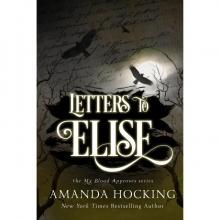 Letters to Elise: A Peter Townsend Novella
Letters to Elise: A Peter Townsend Novella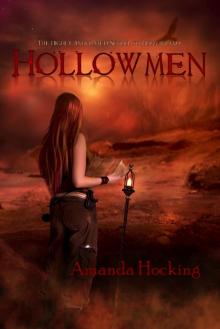 Hollowmen
Hollowmen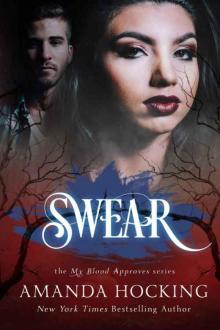 Swear
Swear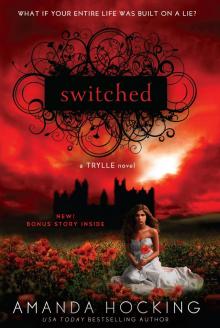 Switched
Switched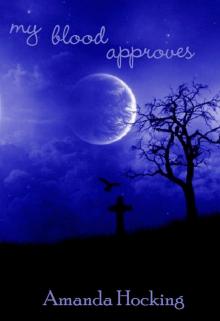 My Blood Approves
My Blood Approves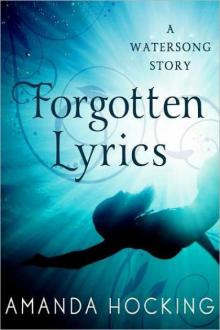 Forgotten Lyrics
Forgotten Lyrics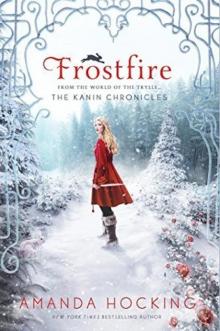 Frostfire
Frostfire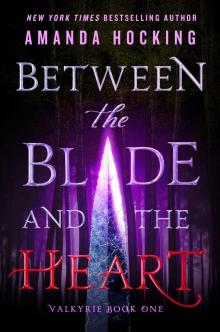 Between the Blade and the Heart
Between the Blade and the Heart Wake
Wake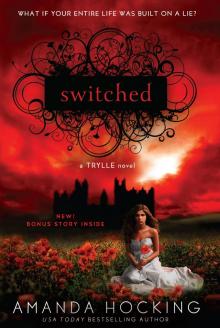 Torn
Torn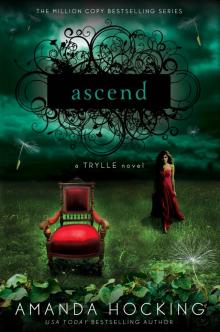 Ascend
Ascend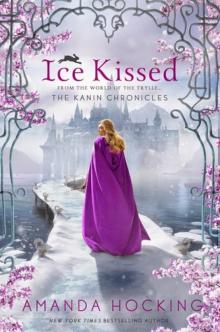 Ice Kissed
Ice Kissed Hollowland
Hollowland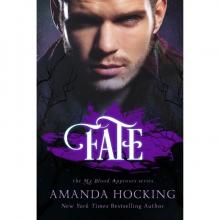 Fate
Fate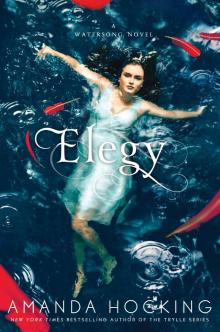 Elegy
Elegy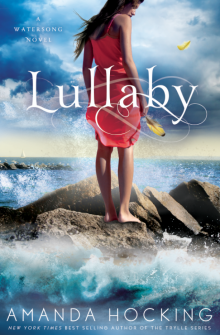 Lullaby
Lullaby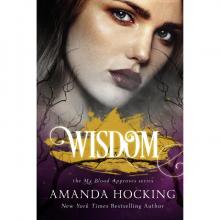 Wisdom
Wisdom Tidal
Tidal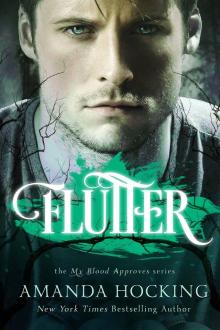 Flutter
Flutter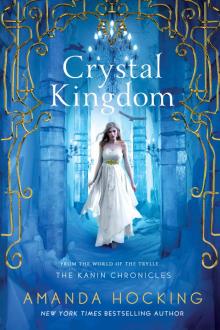 Crystal Kingdom
Crystal Kingdom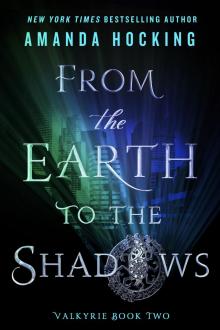 From the Earth to the Shadows
From the Earth to the Shadows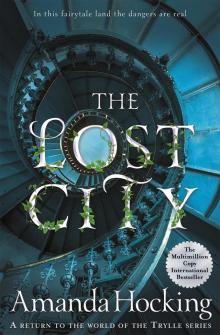 The Lost City
The Lost City The Morning Flower
The Morning Flower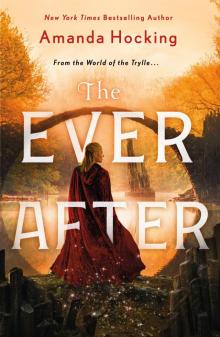 The Ever After
The Ever After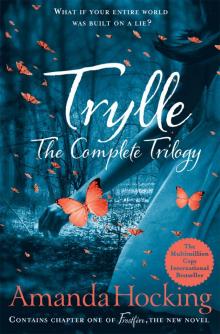 Trylle
Trylle Watersong03 - Tidal
Watersong03 - Tidal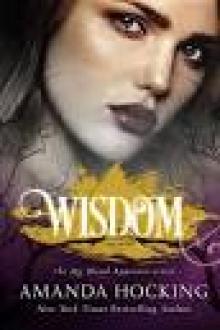 Wisdom (My Blood Approves series)
Wisdom (My Blood Approves series)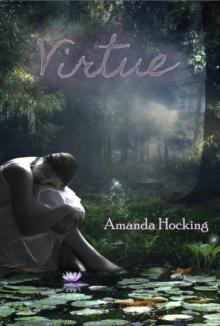 Virtue - a Fairy Tale
Virtue - a Fairy Tale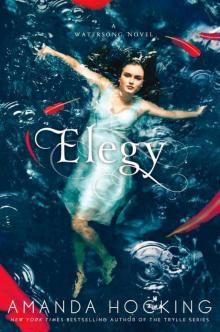 Elegy (Watersong #4)
Elegy (Watersong #4)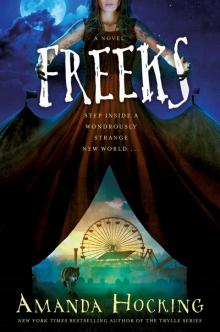 Freeks
Freeks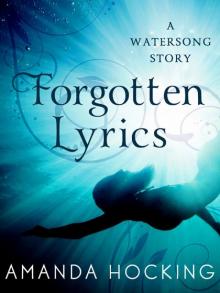 Forgotten Lyrics: A Watersong Story (A Watersong Novel)
Forgotten Lyrics: A Watersong Story (A Watersong Novel)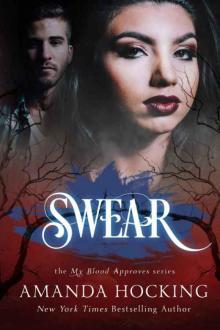 Swear (My Blood Approves #5)
Swear (My Blood Approves #5)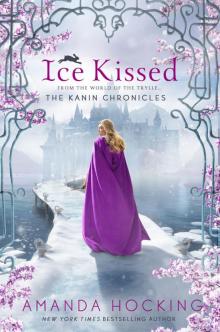 Ice Kissed (The Kanin Chronicles)
Ice Kissed (The Kanin Chronicles)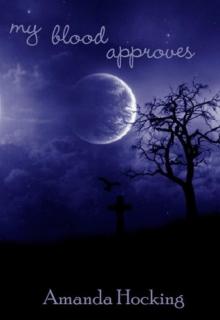 My Blood Approves mba-1
My Blood Approves mba-1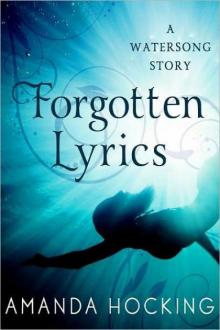 Forgotten Lyrics: A Watersong Story
Forgotten Lyrics: A Watersong Story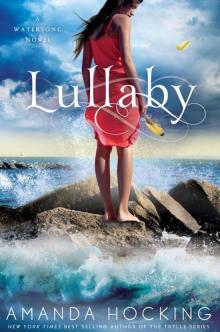 Lullaby (A Watersong Novel)
Lullaby (A Watersong Novel) Wake (Watersong Novels)
Wake (Watersong Novels)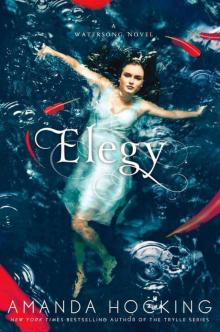 Elegy w-4
Elegy w-4